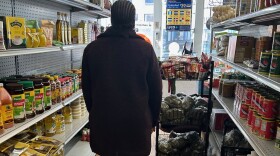The time of the year a private well’s water quality is tested can make a difference in the results, according to new research from the University of New Hampshire.
A new study co-authored by Ranjit Bawa, a visiting assistant professor at the University of New Hampshire, investigated water samples from wells across the state of North Carolina and found that the highest level of bacteria in those wells was found during warm spells.
Bawa said the bottom line for homeowners is that they should test wells in summer months, when the risk is highest.
“If you are testing it in colder months, then you might get a negative test result and that could be a kind of a false sense of security for you as a homeowner when in fact, it could be very well testing for positive contamination if you were to test it in warmer months,” he said.
The researchers looked at water samples from 50,000 wells across North Carolina taken between 2013 and 2018. They focused on wells located near hog farm lagoons, where pigs bathe, to look for spikes in fecal bacteria and E. coli.
They found that the lowest levels of contamination were found in February and March, and the highest levels were found when temperatures were above 90 degrees. Rainfall didn’t affect how much bacteria was detected.
In New Hampshire, hog farms aren’t as big of an issue, Bawa said. But there are other concerns with fecal matter – including human waste.
“Many of the households here in New Hampshire do have well water, and more so, it's coupled with the septic tanks,” he said. “These septic systems may then also kind of be a concern for residents here in terms of leaching into their well waters.”
Almost half of New Hampshire residents get their water from private wells. The Department of Environmental Services recommends testing for harmful contaminants every three to five years, but recommends testing for nitrate and bacteria like E. coli every year.
Nationally, more than 44 million people use private wells. Regulations on public drinking water from the Environmental Protection Agency don’t apply to private well water; well owners are responsible for making sure their own water is safe.
Bawa said state and federal leaders should offer more guidance on when to test wells, telling residents to test during warmer months.





